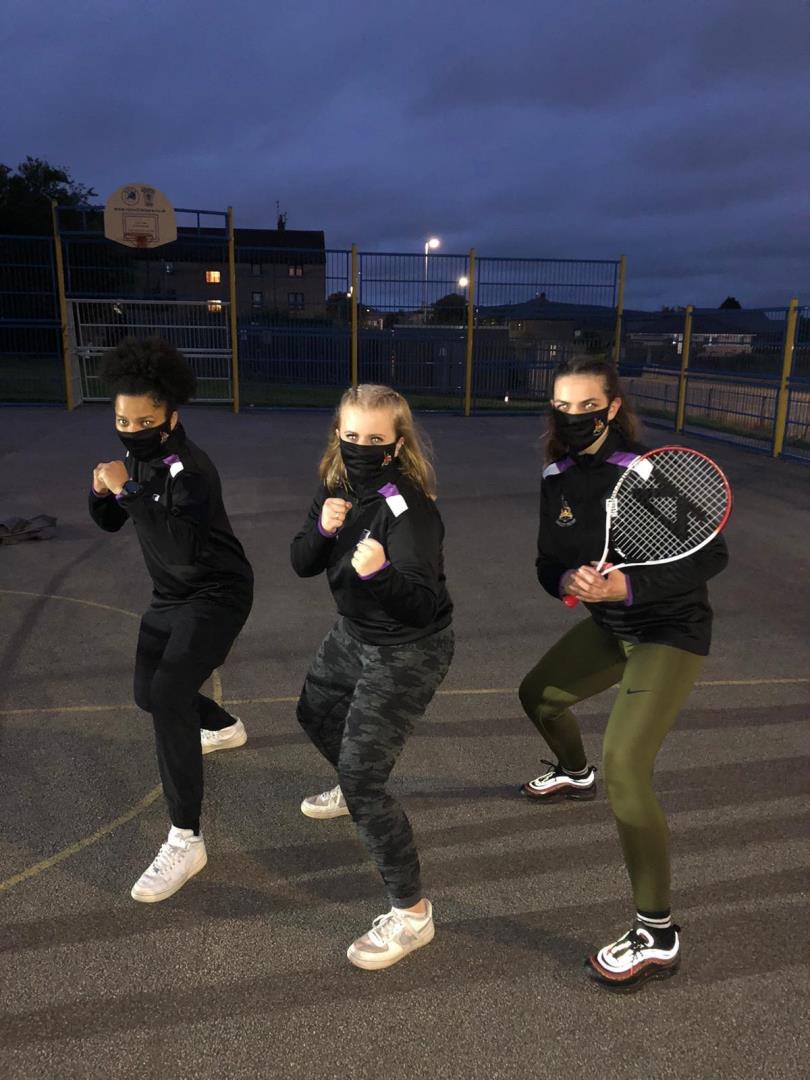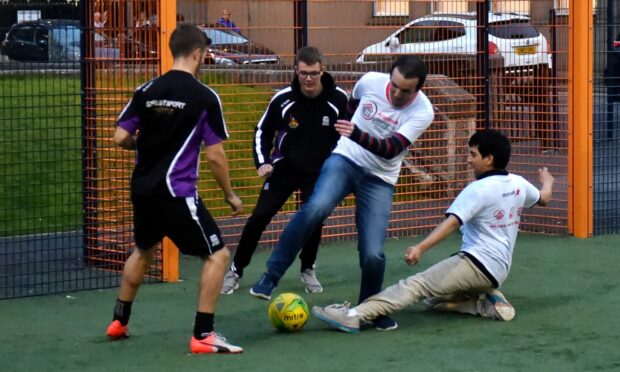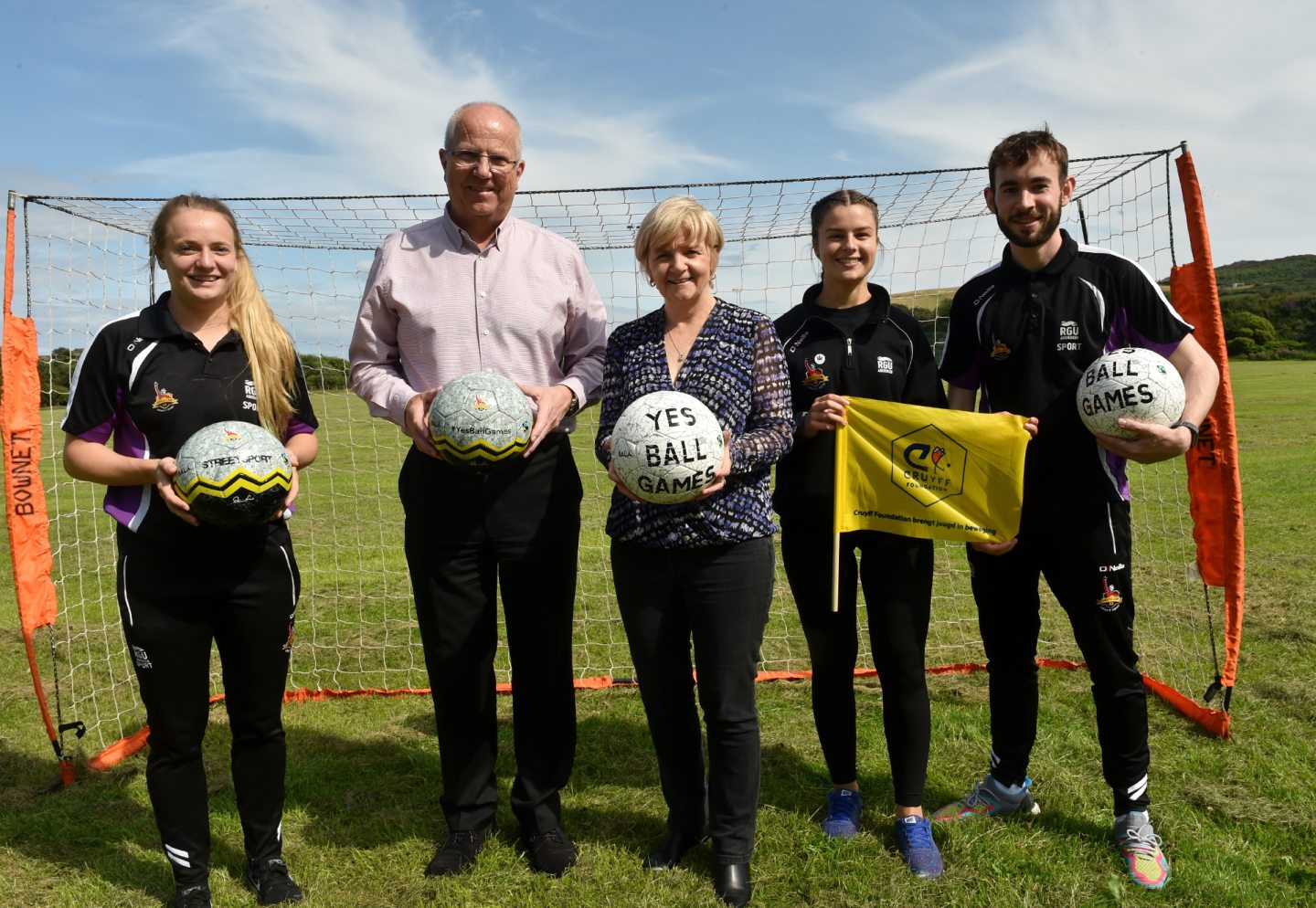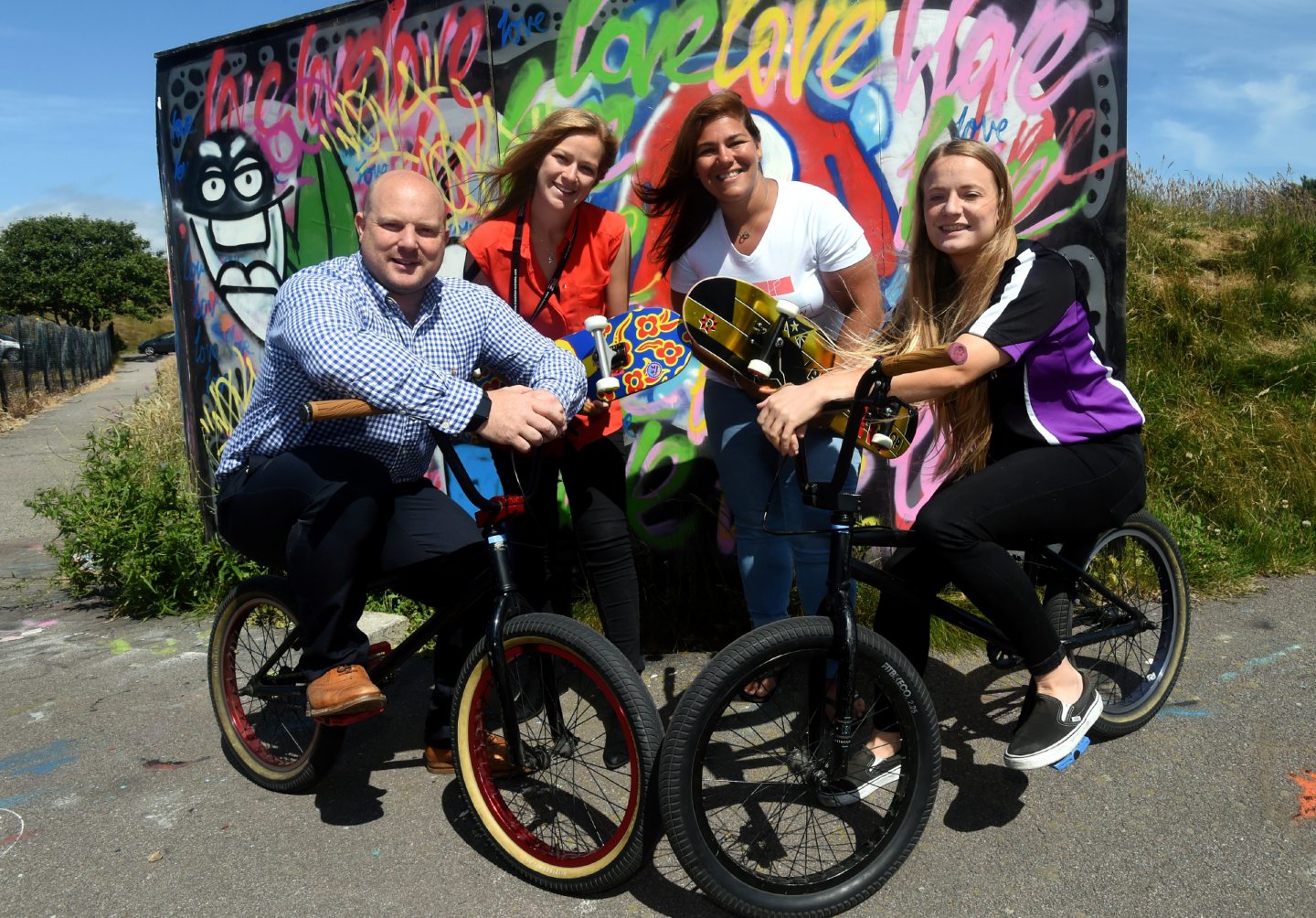An Aberdeen charity is helping thousands of youngsters boost their confidence and mental health using the power of sport.
Many have been left stuck at home and isolated since the start of the pandemic last year, without the opportunities to meet up they had previously.
Fears have been raised about the longer term impact Covid will have on people, particularly when it comes to mental health.
But the weekly sessions from Streetsport, the flagship programme of the Denis Law Legacy Trust, are transforming life for teenagers throughout the city, with thousands regularly taking part.
Outreach development officer Kiana Coutts says their work is making a true difference.
“The biggest change is the increase in confidence,” she said.
“They have the ability to form new friendships and meet other people in their local community.
“It definitely is beneficial to their mental health knowing they’ve got a safe space to come and engage in activities.”
Run through the Denis Law Legacy Trust, Streetsport currently offers nine different sessions each week.
The charity’s been supported by a number of causes, and has recently received a £10,000 grant from the NHS Grampian Endowment Fund.
While most youngsters gravitate to popular favourites like football and hockey, the teams have to be ready for all eventualities.
Mark Williams, Streetsport’s chief operating officer, said: “It’s nothing to do with us, it’s all the kids, they choose.
“All of our sessions are youth-led. You’ve got your typical sports rugby, hockey or football, and there’s minor sports as well.
“Anything the kids want to play, we’ve got three vans full to the roof with sports equipment.
“The coaches literally ask ‘What do you guys want to do tonight?’
“You never know what they’re going to say – but we’re always prepared for it.”
Sport ‘their only outlet’
Alongside the mental health benefits coaches are seeing first-hand, the impact of troublemaking teens has also been affected.
In some parts of the city, Streetsport’s involvement has helped lower antisocial behaviour calls to the police by 90%.
“When you look at antisocial behaviour usually it’s boredom and a lack of opportunity,” Mark added.
“If we can provide a positive activity, then people will engage.
“It’s great that swimming pools, gyms and sports clubs have opened up again, but unfortunately the people we work with can’t afford it, so really this is their only outlet.”
Smashing stereotypes

Initially, there weren’t many girls involved in Streetsport, but the gender balance is now up to 40/60 – something bosses are very proud of.
Mark said: “We’re working very hard to break stereotypes. When we started, only 8% of our participants were female.
“As we stand today, it’s 40% which is actually really impressive – there aren’t too many organisations with that.”
Kiana said the work can prove very valuable, and added: “When girls are reaching that age of hitting puberty, they become m0re self-conscious and the boys around them.
“In S1-2 we have our girls session that runs every week, but there are also other sessions and we make sure they’re included.”
Read more:
Man who hit ‘rock bottom’ with body image issues turns his life around with boxing
Streetsport tackling antisocial behaviour in Dyce
Campaigners say Denis Law legacy trail will transform city community


